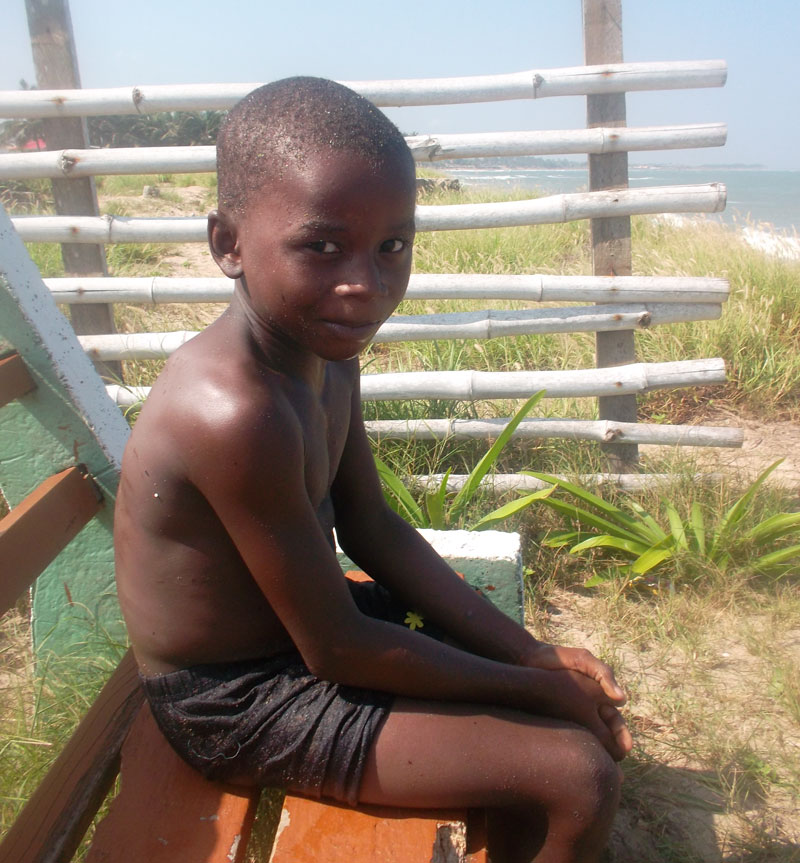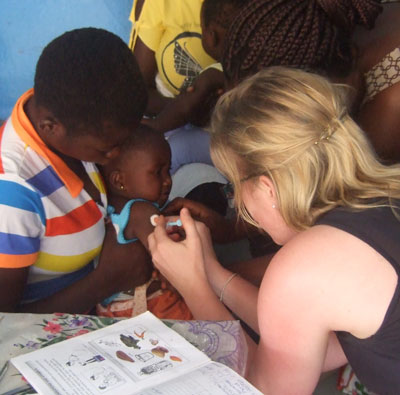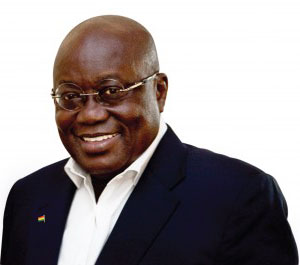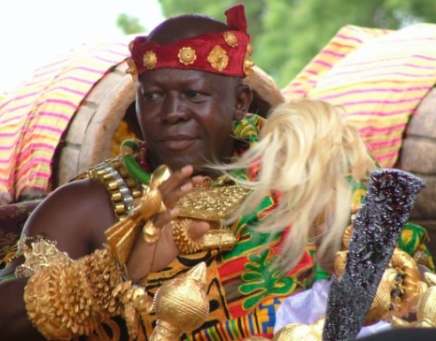| |
|
PROGRAM OVERVIEW |
 |
The Royal Triangle Healthcare Electives and Volunteers program serves as an excellent conduit towards a successful Medical Electives adn Gap-Year in Africa. We take delight in offering projects that enable you to contribute to human and community development.
Essentially a non-profit-making initiative, Royal Triangle specialises in offering rewarding placements for volunteering and Healthcare Elective attachments.
Our Healthcare Elective program is tailored to help students develop their skills in solving health problems in the face of relatively very limited resources. Medical Students for instance would be expected to actively participate in the management of a wide range of health conditions using pure clinical skills. |
| We also specialise in partnering with healthcare philanthropist (Surgeons, Physicians, etc) to offer free or affordable outreach health care to needy communities in Ghana. |
|
| |
 |
With respect to volunteering, we
collaborates with you to offer needed care to needy children and orphans in schools and orphanages respectively. We also collaborate with you to extend assistance to needy communities by working alongside local Ghanaians in community farming projects or community building and construction projects, all with the common purpose of helping to better their lot. Royal Triangle offers you the opportunity to make a real difference in the lives of rural communities and help protect vulnerable game and wildlife while touring captivating sites with other volunteers from all over the world.
Our placements are flexible, very affordable, designed to meet the specific needs of applicants and available all-year-round.
Experience the best a gap year can offer in African through Royal Triangle Volunteers.
|
|
THE COUNTRY GHANA AND ITS PEOPLE
|
 |
Formed from the merger of the British colony of the Gold Coast and the Togoland trust territory, Ghana in 1957 became the first sub-Saharan country in colonial Africa to gain its independence.
Located in West Africa, Ghana is bordered by the Ivory Coast (Cote D'ivoire) in the west, Burkina Faso in the north, Togo in the east and the Gulf of Guinea and Atlantic Ocean in the south. The word Ghana means "Warrior King"
Ghana consists of ten administrative regions and some islands, parts of which are endowed with savannas, woodlands, forests, a coastal line, fertile lands, springs, waterfalls, streams, rivers, caves, lakes, estuaries, mountains, wildlife parks and nature reserves, industrial minerals, precious metals and Fossil fuel. |
|
Ghana practices multiparty democracy and currently has Nana Ado Dankwa AKUFFO-ADDO as it president.
It is considered a regional power and has regional hegemony and it is a founding member of the Non-Aligned Movement and a member of both the Economic Community of West African States (ECOWAS) and the Group of 24 (G24).
Even though a multicultural society, the people of Ghana are among the most hospitable you can find the world over.
Ghanians come from six main ethnic groups: the Akan (Ashanti and Fanti), the Ewe, the Ga-Adangbe, the Mole-Dagbani, the Guan, and the Gurma. The major languages spoken are Twi, Fante, Ga, Hausa, Dagbani, Ewe and Nzema. English is the official language of Ghana. |
|
 |
|
| Note however that the official language in Ghana is English. However, this is widely spoken in bigger towns and cities. Local languages eg. Twi, Ewe, Fanti, Ga etc are spoken in areas dominated by the particular ethnic group. Twi (pronounced "chuwi") is however the most widely spoken language in Ghana and it would be good to know some few words and expressions: |
| Akwaaba -—Welcome |
Debi-— No |
Kor-— Go |
| Me pawocheo-— Please |
Etc sen-— How are you? |
Bra-— Come |
| Meda'ase-— Thank You |
Erye-— I am fine |
Mer tor -— I will Buy |
The Ashante are part of the Akan tribes who speak various dialects of Twi. The language is very rich in proverbs, the use of which is taken to be a sign of wisdom. Euphemisms are very common, especially about events connected with death.
About 60% of Ghanaians are Christian, 15% Muslim and 25% belonging to traditional African religions.
Ghana has the highest percentage of Christians in West Africa, but the belief in traditional animist religions is still extremely common. |
|
Ghana is a country that celebrates festivals. There are several rites and rituals that are performed throughout the year in various parts of the country. They include the right of passage child-birth, puberty, marriage and death. To the majority of people, these celebrations provide all that is satisfying to their communities and families.
Many festivals include thrilling durbars of chiefs, during when tribal leaders and Queen Mothers process in decorated palanquins, shaded by the traditional umbrellas, and supported by drummers and warriors discharging ancient muskets.
Panafest is a festival that is held every summer. It celebrates Ghanaian roots. People from other African countries as well as the African-Americans with roots in Ghana visit the country and celebrate their heritage. |
|
|
 |
|
|
| Social and Cultural Norms |
Daily greetings and greeting after return from an assignment is considered polite. It is also polite to greet someone before making a request for assistance.
Note that in Ghana, same sex holding hands in the streets or with arms around each other's shoulders is perfectly normal and simply depict friendship and nothing amorous. The typical Ghanaian culture abhors homosexuality.
Be ready to bargain at all times to get value for money. Price bargain is a normal practice in Ghana except in big shops and malls where items for sale have been tagged with their prices. Make it a point to bargain on price in all your dealings . Better still, get rough ideas on prices from any of our staff to guide your bargain. |
|
| |
Food |
| Ghanaian cuisine is diverse, and includes an assortment of soups and stews with varied seafood and most Ghanaian soups are prepared with vegetables, meat, poultry or fish.
Fish is important in the Ghanaian diet with tilapia, roasted and fried whitebait, smoked fish and crayfish all being common components of Ghanaian dishes.
Banku is a common Ghanaian starchy food made from ground corn (maize), and cornmeal based staples, dokonu (kenkey) and banku are usually accompanied by some form of fried fish (chinam) or grilled tilapia and a very spicy condiment made from raw red and green chillies, onions and tomatoes (pepper sauce). Banku and tilapia is a combo served in most Ghanaian restaurants.
Fufu is the most common exported Ghanaian dish in that it is a delicacy across the African diasporas. |
|
|
|
| To know more about culture and traditions of the people of Ghana, please Click Here. |
|
|
|
|
|
|
| Security and Safety |
Royal Triangle Volunteers offer 24/7 support by UK, Canadian, German and Ghanaian teams to all our volunteers and electives students as well as 24/7 security in all our dedicated residences.
Take advantage of our programs to experience a great mix of exotic Ghanaian cultures, game and wildlife while achieving our noble agenda of giving back to the needy in society.
|
|
| |
|
|
|